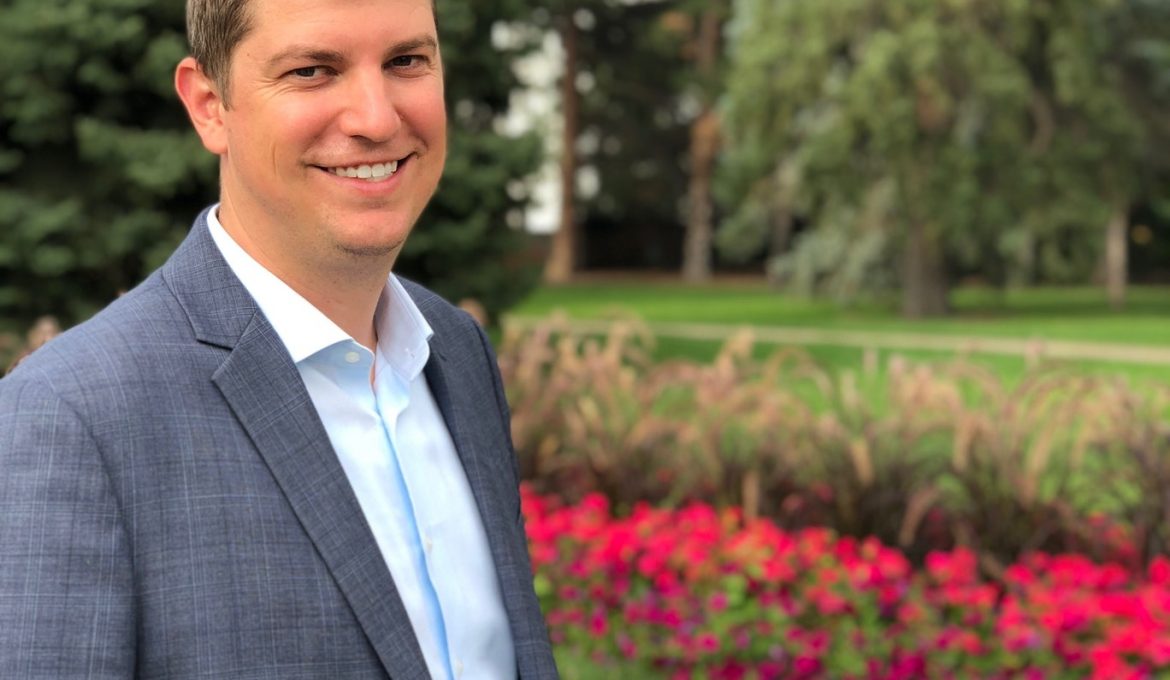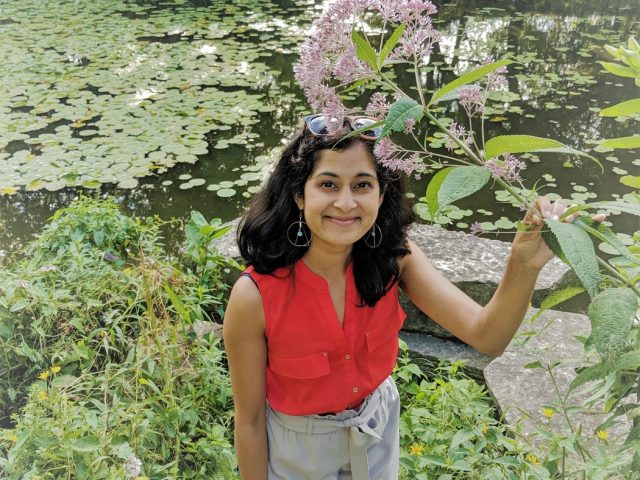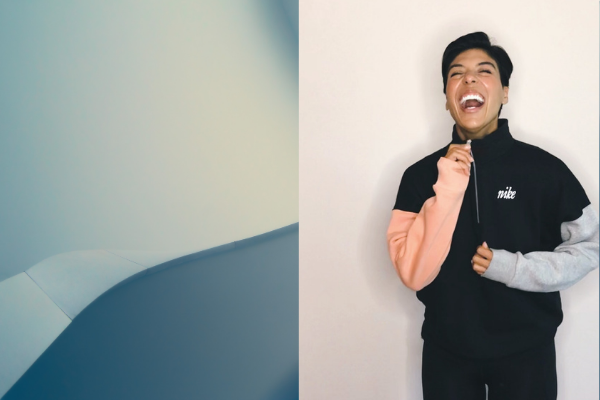Name: Justin Bertron
Location: I live in Denver. I’m a Colorado native. I grew up North of Denver in the Longmont area. I went to CSU, so I lived in Fort Collins for a while.
What do you do?
I do estate and trust planning and administration with my firm, The Bertron Law Firm. So I help people plan for death and disability, and help family members when a loved one is dealing with a disability or when they passed away, and transferring all of their stuff and sort of wrapping up their final affairs.
Where and why did you go to law school?
I went to law school in Milwaukee at Marquette. I wanted to be a sports agent. There are two schools in the country that have sports law programs, Marquette and Tulane, so that’s what attracted me to the school initially. Having always lived in Colorado, I really wanted to experience something different and see a different part of the world. There was a lot about the city of Milwaukee and the school that just felt right, so that’s where I ended up going and got my law degree. Then I briefly moved to Washington D.C. to get an L.L.M. in Tax, with a certificate in Estate and Gift Tax, before returning to Colorado to start my legal career.
What led you to the job you have now?
I try to go into every situation with an open mind and just sort of asking a lot of questions. I knew I wasn’t going to litigate. I knew I didn’t really want to go into a courtroom. Sports agent seems really flashy, but I actually didn’t pursue that at all once I got to law school. I went to a couple of meetings and realized that it wasn’t really what I wanted to do. I knew that I wanted to do some sort of transactional work, so I tried to develop relationships first with professors and then with professionals to get an idea of what paths there were. Quality of life was really important to me. I didn’t want to work a million hours. I didn’t want to never see my family. I didn’t want to be on vacation and working the whole time. The courses I was attracted to were things like tax and real estate. By the end of my first year, I had a pretty good idea that estate planning was the right fit.
What do you like most about what you do?
That’s a tough one. I probably would say my favorite part is I like helping people. It’s a good feeling to say, “Look, this person’s going through a really difficult time. Am I going to make that difficult time go away? No, but I can make it a lot easier to manage and a lot less stressful, and allow them to sort of work through that difficult time.” I think that’s what gives me the most satisfaction out of doing what I do.
You previously worked at a firm. What led to your leaving and starting your own practice? Was it a singular moment or did it build over time?
It certainly builds, but the firm I was at, like many traditional law firms, was extremely numbers-driven. We looked at our numbers every Monday. Every single Monday, we had a report. Here’s your target, here’s where you are, so forth and so on. To see the numbers every day was helpful for me to see how it all worked. At the end of the day, you have to make enough money. But seeing the numbers I brought in and what they were paying me, I thought, “This is insanity.”
I was there for three years. During my yearly review, I thought, “All right, this is just disrespectful at this point, so I’m doing something else.” That was the singular moment when I thought, “They will not make it right, so I’m going to do it myself. I’m going to take that step.” Within two months, I was gone.
What we measure is what we value. Now that you’re on your own, what do you value? How do you define success?
Obviously, there’s a number target that I need to hit to survive and to be able to pay my bills and keep the business running. I’m now trying to grow at a pace that is sustainable and safe and not going crazy taking everything that walks in the door.
Success to me is also is very much about having good relationships with my clients and helping them: feeling good about what I did and having them feel good about what we did. That’s equally, if not more, important to me in my practice now. It’s one of my core values, and I don’t think that will ever change.
What’s been the biggest challenge of going out on your own and how did you work through it?
Balance has probably been hardest for me. As much as I got into this for the lifestyle, when you’re going out on your own, there’s an unlimited number of things that need to be done. Feeling like there are times on a Saturday or a weeknight where I should be hanging out with my girlfriend or doing something with my family, I have the pressure of, “I got to get this thing built in Clio,” or, “I’ve got to get that work done”.
While that’s something I think I’ll probably always struggle with, I’m getting better because I’m getting to the point where I can bring on help. Delegating and finding that balance is a little easier now than it was at first. You have to take breaks. You can’t work 12-hour days, seven days a week. You have to take time off, you have to eat dinner, you have to decompress, you have to do stuff that is enjoyable or you’ll get burnt out.
What do you enjoy doing outside of work?
Being outdoors is the biggest thing. My girlfriend and I are big outdoors folks. We just picked up a Sprinter van last Friday that we’re going to convert. Super pumped about that.
Fly fishing is my passion. Just being in the mountains is good enough, but there’s something about being on a river and the beauty and the sort of quiet and solitude. That is really a big recharge for me. That’s something where I can come back and feel really energized to work on my business and go out and get clients and do all that kind of stuff.
We’re also big travelers. I love to experience new cultures. I love to see how people in different parts of the world are similar and different. And I like to eat, so I’m always interested in the local food. We recently went to Colombia and Mexico City. I love to find where the locals eat.
When we can travel again, what’s next on your list?
We were looking at going to Europe, but that got canceled. Since it will likely be a while until we can travel internationally, I really want to explore more of the US that I haven’t seen. That’s our focus right now, but we’d like to plan a trip to Peru. We want to do Machu Picchu. That’s pretty high on the list. And then hopefully, Asia. Maybe like Thailand or Vietnam.
What would be something that most folks would be surprised to learn about you?
I’ve been sober for three years now. While it’s not something I broadcast, it’s not something I hide either. Being a lawyer, the stress of it, and the American culture is very much surrounded by drinking. I never thought that I would be someone who had a problem, but I’ve dealt with anxiety since I was very young. It’s been a journey throughout the whole process and is something that I’m open about because I’m not the only one. The numbers are pretty clear. We all have felt like we’re the only person and there’s no one that we can talk to. So being more open in a safe space to talk about that kind of stuff is important. And if I can be a part of that, it helps me too. It goes back to helping others, which is really important to me.
Is there something you’ve found has been most impactful on your journey?
I think the biggest thing is talking to people. It’s something that I can use as a common ground to say, “This is something I’ve struggled with personally.” It may not be the same struggle that you’re going through, but I can certainly understand how difficult life is. Life is not easy for anybody.
Self-care is also of utmost importance to me. Meditation has been a big part of my life as I’ve gone through this process. I meditate pretty much every day, at least once a day. If I’m struggling, I’ll probably do it two or three times a day. For the last two months, I’m trying something new that I really have liked. It’s called BrainTap. It is a guided meditation that focuses on your brainwaves. We have different brainwave states for different things that we’re doing, like relaxation, learning, and sleep. The app plays two different frequencies that offset into the particular brainwave that you’re trying to achieve. I’ve noticed a pretty profound change by using that.
If you could wave a magic wand and change one thing about the legal profession, what would it be?
I would change the feeling that there’s one way to do it and we all need to do it the same way. The profession as a whole is just terrified of change. We’ve gotten comfortable doing something one way for such a long time. The newer generation of professionals has a different perspective because we’ve seen a lot of change in the world, so it’s more natural to us. But it’s what drove me insane about my old firm. They would say, “Well, this is the way we’ve always done it.” That’s a really lazy argument. Of course, we want to avoid risk, but there’s no question about it: there are better ways we can do it.
What is one new thing you are hoping to learn from others in this community?
How can I incorporate what other people are doing to improve my practice when it comes to creativity, different ways of doing things, and different ways to look at problems? The sharing of ideas is so important to growing and figuring out better ways to do things. We all probably feel very isolated at times. I know I do. So it’s great to have other people to know I’m not the only person stepping out on this limb and trying to do things differently.
And what is one thing you are looking to share with others in this community?
If anybody ever wants to reach out about sobriety and talk about that, I’m happy to talk. I’m an open book. I love collaborating. I love meeting new people and talking to them about what I’m doing and being able to ask them questions about what they’re doing to see if we can help each other in some way. Often in business, there’s a perception that everything has to be a competition. I just don’t feel that way. I think we can all learn a lot from each other.








